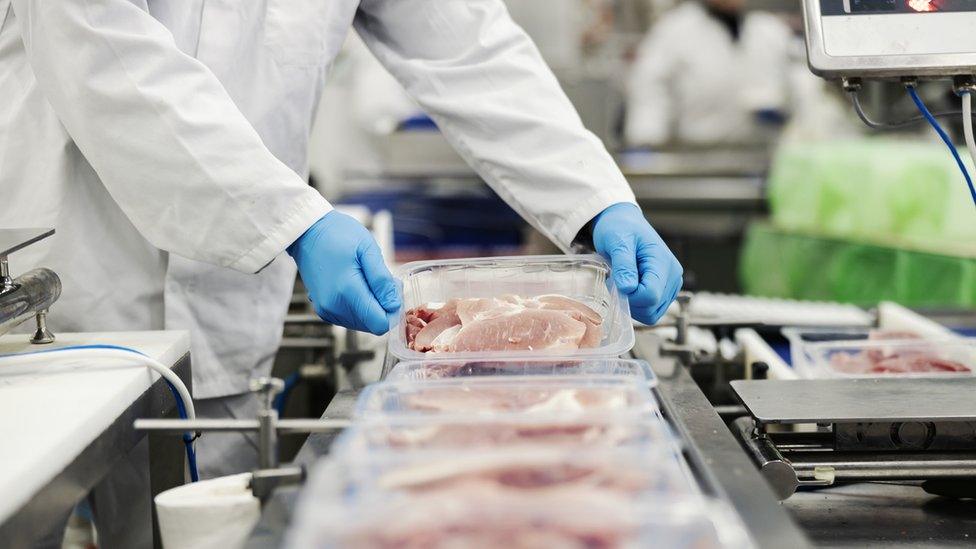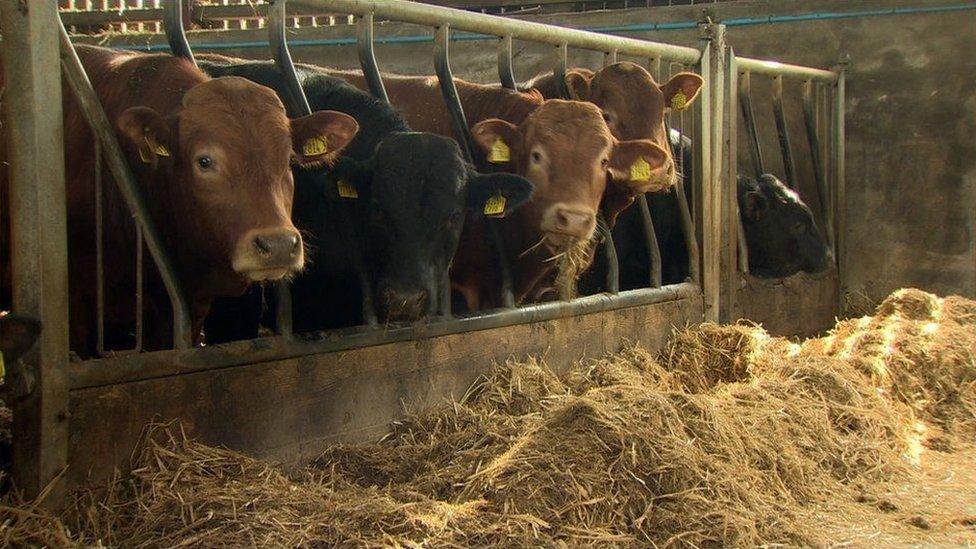Vets strike: Some meat factories may have to close next week
- Published

The British Meat Processors Association warned the vets' strike would cause a loss of income for the food sector
Some meat factories in Northern Ireland may have to close next week due to a strike by government vets, a body representing meat producers has warned.
Union members will begin five days of action on Monday over a pay dispute.
The British Meat Processors Association (BMPA) said no slaughter of cattle, pigs, sheep or poultry can take place unless official vets are in abattoirs.
It said that meant some meat plants would have to shut, resulting in disruption to the food supply chain.
But supermarkets are playing down the risk of product shortages.
Stormont's agriculture department, which employs the vets through the Veterinary Service Animal Health Group (VSAHG), said it would prioritise staffing poultry factories.
It is understood the red meat sector expects to keep major plants operating and is not anticipating shortages for consumers.
The Nipsa union, which represents the vets, said their walkout was over a "decision to impose a derisory pay award of £552" for civil service staff.
Announcing the strike last week, Carmel Gates from the union said its members were "fed up" with below-inflation pay offers.
"These members play a vital role in ensuring we have a safe food supply," she added.
Oversized pigs
The BMPA said the strike would raise commercial and animal welfare issues.
Its chief executive Nick Allen said the ceasing of operations at some plants would mean a loss of income for those businesses as well as disrupted food supply chains.
"This is a particular worry as we enter the busiest period of the year in the run up to Christmas when our members are preparing festive products like hams and pigs-in-blankets." he said.
The BMPA said there was concern about animal welfare in the pork sector, with a backlog of pigs building up on farms.
It added that farmers faced a commercial issue as those animals become too big and "out of scope" for sale in supermarkets.
The Department of Agriculture, Environment and Rural Affairs said this week that it "cannot guarantee the provision of official controls and activities across all slaughter and animal processing establishments from 30 October to 3 November".
It added that to mitigate the impact on animal health and welfare it would "prioritise the slaughter and processing across the intensive livestock sector commencing with poultry, reviewing the situation daily and modifying service provision where capability allows".
The strike is also expected to disrupt the operation of the Irish Sea trade border.
Related topics
- Published26 October 2023
